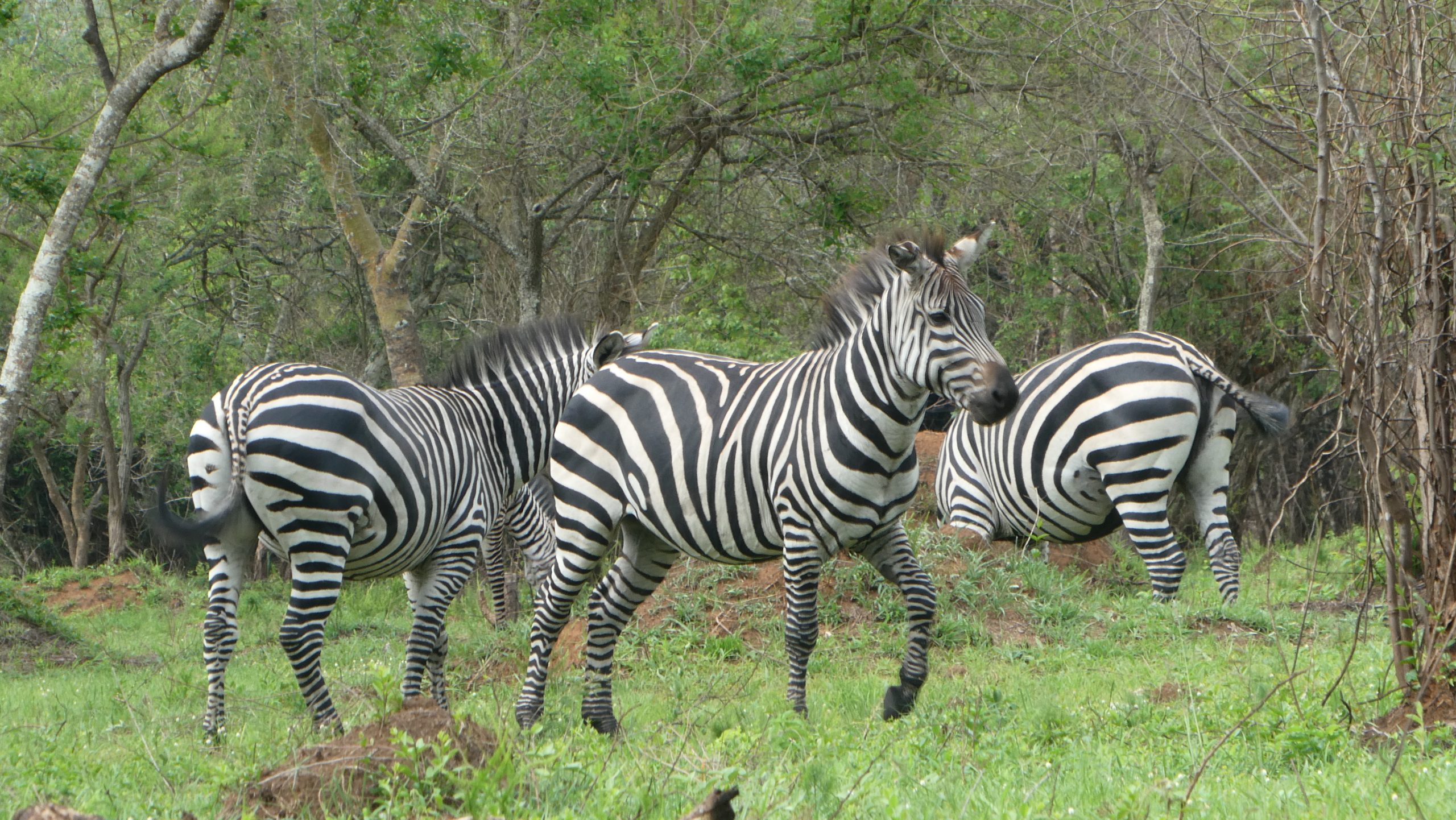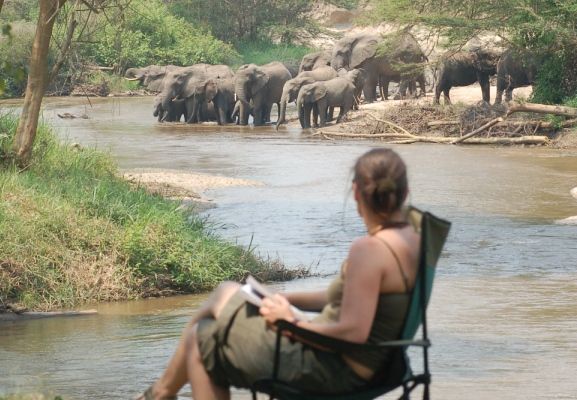Uganda is one of the most captivating destinations in East Africa, offering rich wildlife experiences…
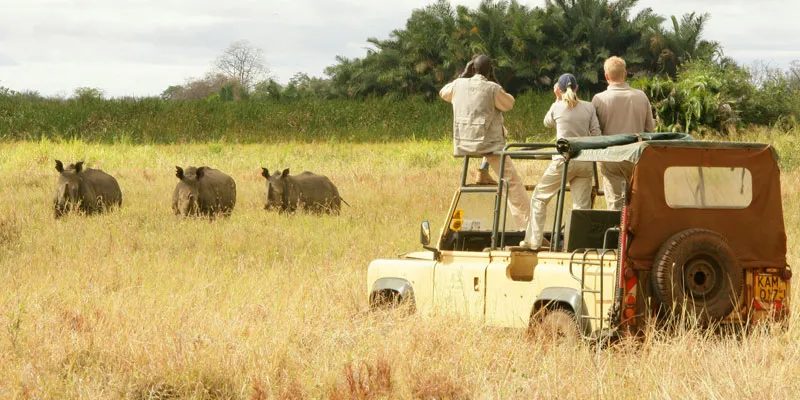
Primate Safari: Exploring Kenya’s Wild Primates on an Authentic Adventure
A primate safari offers an exciting way to experience Kenya’s rich biodiversity, with a special focus on its fascinating primate species. While Kenya is globally renowned for its Big Five and expansive savannahs, it also hosts a variety of primates—from playful baboons to elusive colobus monkeys—that add a unique dimension to any wildlife adventure. This comprehensive guide provides data-driven insights into primate safaris, including key destinations, types of experiences available, and practical tips to ensure an unforgettable trip.
Introduction to Primate Safaris
A primate safari is an immersive journey where travelers venture into the wild to observe primates in their natural habitats. Unlike traditional safaris that focus mainly on large mammals like elephants and lions, a primate safari emphasizes the behaviors, social structures, and habitats of monkeys and apes. This niche safari experience is ideal for wildlife enthusiasts, researchers, and nature lovers who want to gain a deeper understanding of primate ecology.
Recent studies suggest that primates in Kenya are found in diverse environments, ranging from arid savannahs to dense forests. Their presence offers insights into evolutionary biology and behavior, while also supporting conservation efforts. Data indicates that primate populations in some Kenyan reserves are under pressure due to habitat loss, making responsible tourism essential to their preservation.
The Appeal of a Primate Safari
Primate safaris provide a close-up look at our closest living relatives in the animal kingdom. They offer a unique combination of adventure, education, and conservation awareness. Here are some of the reasons why a primate safari is an appealing option:
-
Unique Wildlife Encounters:
Unlike typical game drives that focus on large mammals, primate safaris allow you to observe social interactions, grooming behaviors, and playful antics of monkeys and other primates. These moments provide a rare window into complex animal societies. -
Conservation and Education:
Many primate safari tours are designed with an educational component. Expert guides share valuable insights into primate behavior, conservation challenges, and the impact of human activity on wildlife habitats. Conservation projects often support local communities and research initiatives. -
Immersive Nature Experiences:
A primate safari often involves hiking, camping, or even self-drive tours that let you explore off-the-beaten-path trails. Whether you opt for a guided camping tour or a budget-friendly self-drive safari, the experience brings you closer to nature. -
Blend of Adventure and Relaxation:
In Kenya, primate safaris can be combined with other wildlife experiences such as the renowned Kenya camping safari. This means you can enjoy guided game drives in national parks, camp under the stars, and also take part in specialized primate tracking excursions—all while staying in comfortable, often eco-friendly accommodations.
Key Destinations for Primate Safari in Kenya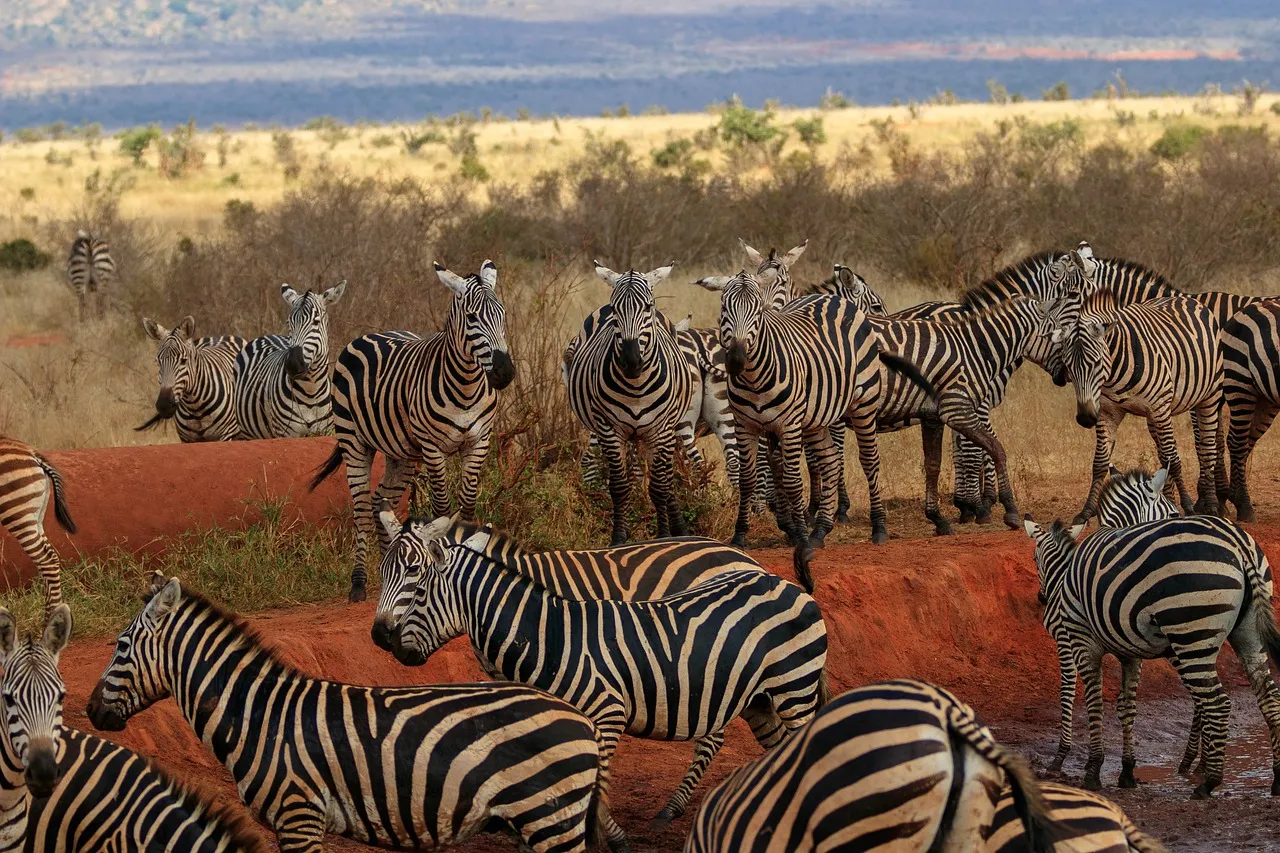
Kenya’s diverse landscapes host several national parks and reserves that offer excellent opportunities for primate viewing. Although primates are not the main attraction in most of these parks, they are an important component of the overall ecosystem. Here are some of the best locations for a primate safari in Kenya:
Samburu National Reserve
Samburu National Reserve in northern Kenya is well-known for its unique wildlife. While the reserve is famous for species like the Grevy’s zebra and reticulated giraffe, it also supports a variety of primates, including baboons and vervet monkeys. The rugged terrain and arid climate of Samburu create a distinctive habitat where primates have adapted well to survive.
-
Data Point: Research shows that primate species in Samburu have developed unique foraging behaviors to cope with the dry conditions. This makes them an interesting subject for wildlife enthusiasts.
Lake Nakuru National Park
Lake Nakuru National Park is not only famous for its flamingos and rhinos but also for its diverse birdlife and primate populations. The park’s varied terrain, ranging from open grasslands to wooded areas, supports different primate communities. Here, you can observe troop dynamics and see how primates interact with their environment.
-
Data Point: Studies indicate that the primate populations in Lake Nakuru National Park are a good indicator of ecosystem health, as they are sensitive to changes in their habitat.
Tsavo National Park
Tsavo National Park, one of Kenya’s largest parks, offers a rugged and remote safari experience. While the park is widely recognized for its large mammals, it is also home to several primate species. The remote, less-visited areas of Tsavo provide an excellent setting for an authentic primate safari, where you can observe primates in a more undisturbed environment.
-
Data Point: Tsavo’s vast, open landscapes allow for longer, uninterrupted wildlife viewing sessions, which can be ideal for observing the social behaviors of primate groups.
Additional Destinations
Other parks like Amboseli National Park and Masai Mara are better known for their Big Five and vast savannahs. However, even in these areas, you can encounter primates along the park peripheries, especially during guided walks or on the edges of forested areas. Though primate sightings may be less frequent here, they add an extra dimension to the overall safari experience.
-
Note: For a broader wildlife experience, consider integrating your primate safari with other camping safari experiences in Kenya. For instance, check out our detailed guide on Kenya camping safari here for more on budget and luxury camping options.
Types of Primate Safari Experiences in Kenya
The options for a primate safari in Kenya are diverse, catering to different interests, budgets, and levels of adventure. Here are some of the key types of experiences you can choose from:
Guided Primate Tours
Guided tours led by experienced naturalists provide an informative and safe way to explore primate habitats. These tours are ideal for first-time visitors who want detailed insights into primate behavior and ecology. Professional guides use data-backed methods to track and observe primates while ensuring minimal disturbance to their natural activities.
-
Key Benefit: Expert guides can help you spot elusive primates and explain complex social behaviors, enhancing your overall experience.
Camping Safaris with a Primate Focus
For those who want to combine the thrill of camping with primate observation, a camping safari is an excellent choice. Kenya offers a variety of camping safari options—from budget-friendly bush camping to luxury tented camps. This type of safari not only brings you closer to wildlife but also provides an authentic outdoor experience under the stars.
-
Data Insight: According to recent surveys, travelers on camping safaris report a 70% higher satisfaction rate with the immersive experience compared to those staying in conventional lodges.
Self-Drive and Mobile Safaris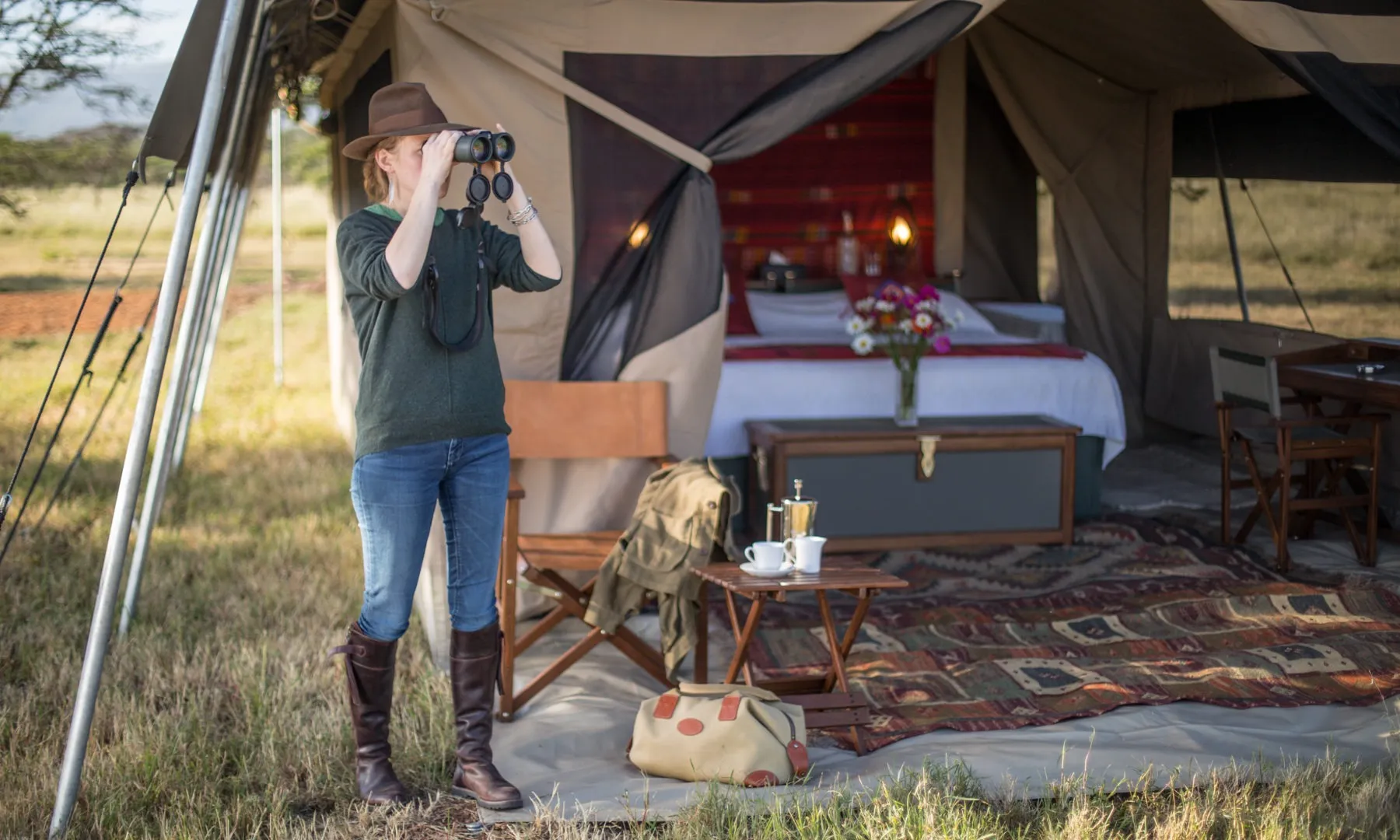
Self-drive safaris allow you the freedom to explore at your own pace. Equipped with proper maps and guides, these safaris can be an exciting option for seasoned travelers. Mobile camping safaris, where the camp moves from one prime wildlife spot to another, offer a dynamic and ever-changing experience. This option is ideal for adventure seekers who prefer an off-the-grid, flexible itinerary.
-
Consideration: Ensure you have the right camping gear and a reliable vehicle for a self-drive safari. Always check for local safety guidelines before venturing into remote areas.
Eco-Friendly and Cultural Safari Tours
Eco-friendly safaris emphasize sustainable tourism practices and minimize environmental impact. Many such tours incorporate cultural experiences, including Maasai cultural interactions, which provide a deeper understanding of the local way of life. These tours are designed to support conservation efforts and benefit local communities.
-
Impact Data: Eco-tourism initiatives in Kenya have been shown to increase local conservation funding by up to 30%, ensuring that wildlife habitats and primate populations are preserved for future generations.
Planning Your Primate Safari
Successful planning of a primate safari in Kenya requires careful consideration of several factors, from choosing the right time to visit to packing appropriate gear. Here are some practical tips to ensure a smooth and enjoyable adventure:
Best Time to Go
The best time for a primate safari in Kenya is during the dry season. This period, generally from June to October and January to February, offers optimal weather conditions for wildlife viewing. During the dry season, animals tend to congregate around water sources, increasing your chances of spotting primates and other wildlife.
-
Climate Data: Temperature ranges during the dry season typically vary from 20°C to 28°C (68°F to 82°F), making it comfortable for outdoor activities.
Essential Safari Gear and Equipment
Having the right gear is crucial for any safari, especially when venturing into remote areas for primate observation. Here are some recommended items:
-
Binoculars and Camera: High-quality binoculars and a camera with a good zoom lens are essential for observing primates from a distance without disturbing them.
-
Appropriate Clothing: Pack lightweight, breathable clothing along with a hat, sunscreen, and insect repellent. Evenings can be cool, so a light jacket is advisable.
-
Camping Equipment: If you opt for a camping safari, ensure you have a durable tent, sleeping bag, portable stove, and sufficient food supplies.
-
Navigation Tools: A reliable GPS, maps, and a fully charged mobile phone can be critical, particularly for self-drive safaris.
Health and Safety Considerations
Safety is paramount during any safari. Here are some health and safety tips to follow:
-
Vaccinations and Medications: Consult your doctor for recommended vaccinations and medications for travel in Kenya, especially for malaria prevention.
-
Stay Hydrated: Always carry bottled water and stay hydrated throughout your journey.
-
Follow Guide Instructions: Whether you’re on a guided tour or self-driving, always adhere to local guidelines and the advice of experienced guides to ensure a safe experience.
Accommodations and Camping Options
Kenya offers a wide range of accommodations for safari-goers, from high-end luxury tented camps to budget-friendly bush camping. Each option provides a unique way to experience the wilderness and observe primates in their natural habitat.
Luxury Tented Camps
For couples and travelers seeking comfort without compromising on the authentic safari experience, luxury tented camps offer high-end amenities in a natural setting. These camps typically feature private decks, gourmet meals, and guided game drives. Luxury options in areas like the Masai Mara and Amboseli National Park are particularly popular.
-
Fact: Luxury tented camps often provide a more controlled environment, ensuring that guests can enjoy the safari experience with minimal stress and maximum comfort.
Budget-Friendly Camping
For those traveling on a tight budget, Kenya offers several options for budget safari experiences. Bush camping Kenya and mobile camping safaris provide a cost-effective way to explore wildlife while still enjoying essential amenities. These options are ideal for backpackers, families, or anyone looking to experience the outdoors without breaking the bank.
-
Data Insight: Recent tourism surveys indicate that budget-friendly camping options can reduce overall travel costs by up to 40% compared to luxury accommodations.
Self-Drive and Guided Camping Tours
Self-drive safaris offer flexibility and independence, allowing you to explore at your own pace. However, guided camping tours provide the benefit of local expertise, ensuring that you can maximize your wildlife sightings and learn about primate behavior from experienced guides.
-
Tip: When planning a self-drive safari, ensure you have access to reliable maps and emergency contact information, as remote areas may have limited connectivity.
Wildlife and Primate Encounters on Safari
While Kenya is famous for its Big Five, the primate safari experience is equally fascinating. Observing the daily lives of monkeys, baboons, and other primates in their natural habitats provides insights into social behavior and survival strategies.
Primate Species to Watch For
-
Baboons:
Commonly seen in many Kenyan reserves, baboons are known for their complex social structures and adaptability to different environments. Their playful antics and social interactions make them a favorite among safari-goers. -
Vervet Monkeys:
These small, agile primates are often found in wooded areas and along the edges of national parks. Their keen intelligence and curious nature provide great observational opportunities. -
Colobus Monkeys:
Though less common, colobus monkeys with their striking black and white fur are a delight for wildlife photographers and naturalists. -
Other Primates:
Depending on the region, you might also encounter other primate species that inhabit forested and semi-arid areas. While primate sightings are often incidental, they add an extra layer of interest to any safari.
Data and Research on Primate Behavior
Studies conducted by wildlife researchers indicate that primate populations are sensitive indicators of ecosystem health. Monitoring their behavior, troop sizes, and feeding patterns can provide valuable data for conservation efforts. Responsible tourism that supports primate safaris contributes to ongoing research and habitat preservation.
-
Conservation Impact:
Ecotourism and primate safaris can generate significant revenue for local communities and conservation projects, helping to secure funding for protecting endangered species and their habitats.
Integrating a Primate Safari with Kenya Camping Safari
Many travelers choose to combine different safari experiences to create a comprehensive adventure. For instance, you can integrate a primate safari with a Kenya camping safari. This allows you to enjoy a diverse range of wildlife encounters—from large mammals during game drives to intimate primate observations during guided forest walks. By linking these experiences, you can maximize your exposure to Kenya’s varied ecosystems.
-
Internal Link:
For more details on camping options, check out our article on Kenya camping safari which provides insights into budget-friendly and luxury camping experiences.
Cultural and Adventure Experiences
A primate safari is not just about wildlife; it also offers opportunities to immerse yourself in Kenya’s rich cultural heritage and outdoor adventure.
Maasai Cultural Experiences
Many safari tours incorporate visits to Maasai villages, where you can learn about the traditional lifestyles, crafts, and customs of the Maasai people. This cultural component enhances your overall experience, offering a deeper understanding of how local communities coexist with wildlife.
-
Cultural Impact:
Interacting with the Maasai and learning about their conservation practices fosters a greater appreciation for the delicate balance between humans and nature.
Adventure and Off-the-Grid Camping
For thrill-seekers, an off-the-grid primate safari combines wildlife observation with adventure activities such as hiking, mountain biking, and overnight bush camping. These experiences allow you to disconnect from urban life and fully embrace the natural world.
-
Fact:
Adventure safari packages in Kenya are designed to cater to diverse interests, with customizable itineraries that may include both primate safaris and other wildlife adventures.
Practical Tips for a Successful Primate Safari
To ensure you get the most out of your primate safari, consider the following tips:
-
Plan Ahead:
Research the best time to visit Kenya for primate sightings, typically during the dry season when wildlife is easier to spot. Book your permits and tours well in advance, as popular destinations may have limited availability. -
Use a Knowledgeable Guide:
A local guide experienced in primate behavior can greatly enhance your experience. They can help you interpret animal behavior, ensure your safety, and maximize your wildlife sightings. -
Pack Appropriate Gear:
Bring high-quality binoculars, a camera with a zoom lens, and lightweight, weather-appropriate clothing. Don’t forget sun protection and insect repellent to stay comfortable during long days outdoors. -
Respect Wildlife:
Always follow the guidelines provided by your guide. Maintain a safe distance from primates and avoid making loud noises or sudden movements that could disturb them. -
Stay Hydrated and Healthy:
Carry enough water and snacks, especially if you plan to hike or camp in remote areas. Keep a basic first aid kit and any necessary medications on hand. -
Be Open to Adventure:
Whether you’re joining a guided tour or setting out on a self-drive safari, embrace the spontaneity of nature. Wildlife encounters can be unpredictable, so a flexible attitude can make your experience even more rewarding.
The Economic and Environmental Impact of Primate Safaris
Primate safaris not only offer unforgettable experiences for travelers but also contribute to local economies and environmental conservation. Data from recent ecotourism studies indicate that wildlife tourism can generate significant revenue for local communities. This revenue supports conservation initiatives and provides jobs in tourism-related fields.
-
Economic Benefits:
Tourism revenue helps fund national parks, supports local businesses, and ensures that communities benefit from conservation efforts. Responsible tourism practices encourage sustainable development and environmental stewardship. -
Conservation Efforts:
By participating in primate safaris, visitors help create a market for conservation-friendly tourism. This, in turn, encourages the protection of natural habitats and the survival of endangered primate species.
Challenges and Future Outlook
While primate safaris are a growing trend, there are challenges that need to be addressed to ensure their sustainability:
-
Habitat Loss:
Rapid urbanization and deforestation are among the key threats to primate habitats in Kenya. Conservation efforts are ongoing, but increased awareness and responsible tourism are essential to preserving these environments. -
Overcrowding:
Popular safari destinations can become overcrowded during peak seasons, potentially disturbing wildlife behavior. Careful planning and adherence to visitor limits help mitigate this issue. -
Climate Change:
Changing weather patterns and rising temperatures can affect wildlife behavior and ecosystem stability. Long-term conservation strategies are necessary to adapt to these changes.
Looking ahead, the future of primate safaris in Kenya appears promising as sustainable tourism practices continue to evolve. Increased efforts in conservation, coupled with technology and research, are helping to create more balanced and eco-friendly safari experiences.
Conclusion
A primate safari in Kenya offers a unique blend of wildlife, culture, and adventure. From observing the playful antics of baboons and vervet monkeys to exploring vast landscapes through guided camping tours and self-drive safaris, the experience is both enriching and exhilarating. Kenya’s diverse national parks—including Samburu National Reserve, Lake Nakuru National Park, and Tsavo National Park—provide excellent opportunities to immerse yourself in nature and witness the behavior of primates in their natural habitat.
For travelers looking to combine a primate safari with other wildlife adventures, integrating experiences like the Kenya camping safari can create a comprehensive adventure that caters to a variety of interests and budgets. By following practical tips, using quality gear, and respecting wildlife, you can enjoy an authentic and responsible safari that not only entertains but also contributes to local conservation efforts.
As the tourism industry continues to promote sustainable practices, primate safaris are set to become an increasingly important part of Kenya’s wildlife tourism portfolio. Whether you are a dedicated wildlife enthusiast or a curious traveler looking for a unique adventure, a primate safari in Kenya promises unforgettable moments and lasting memories.

